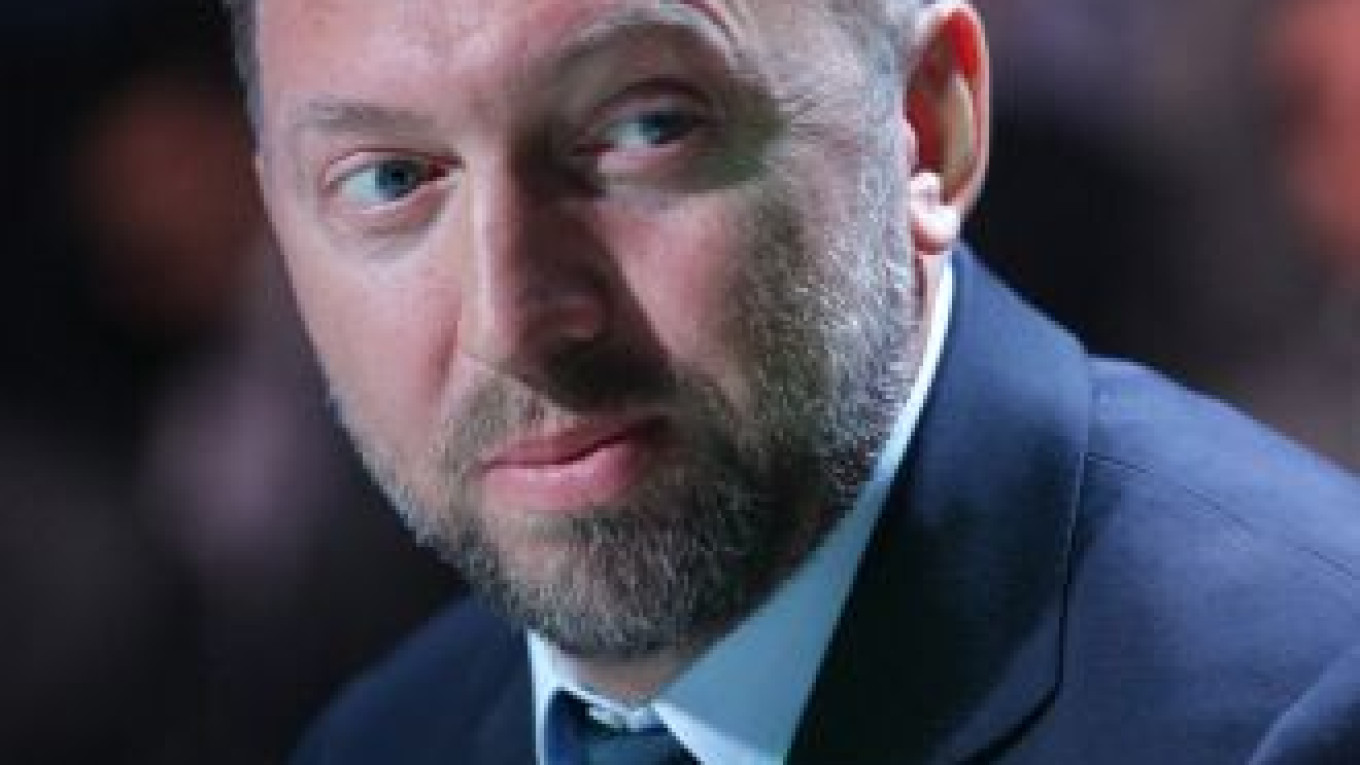LONDON —? Lawyers this week delved into the early career of one of Russia's richest men.
Billionaire Oleg Deripaska was already successful and "established" by the time he met rival oligarch Michael Cherney in 1994 at 26, his lawyers told a London court.
They argued that Deripaska would not have needed Cherney's support to build his aluminum empire.
Deripaska is fighting a claim from Cherney, an Israeli-based billionaire who says the two were partners and claims he is owed a 13.2 percent stake in RusAl, the world's largest aluminum producer, of which Deripaska controls the largest stake.
The case has shined a spotlight on the often-lawless post-Soviet 1990s, when well-connected Russians jostled for privatized state assets and organized-crime and "protection" groups became influential.
Deripaska accuses his opponent of links to criminal gangs.
But on the eve of an adjournment of the case until September, he is facing allegations made by prosecutors abroad that he himself was involved in bribery and murder.
Deripaska, who is expected to call compatriot and Chelsea football club owner Roman Abramovich as one of his witnesses, denies that he and Cherney were allies.
He says he received threats and was forced into a protection racket — or krysha in Russian — orchestrated by Cherney and supported by some of the country's most powerful criminal gangs in the mid-1990s.
In opening statements by the defense Wednesday, his legal team argued that Deripaska had no need for the contacts and financing that Cherney says he provided to build an aluminum empire.
Deripaska's side argued that Cherney had fled Russia in late 1993 or early 1994 to escape a fraud investigation.
Deripaska's legal team said the entrepreneur used profits from his trading business, established as far back as 1991, when he was a still a physics student, to invest in assets including Sayansk Aluminum Plant, one of Russia's largest.
"The idea that he was some sort of struggling student, with summer jobs, is just wrong," Deripaska attorney Thomas Beazley told the court.
Deripaska "was in fact an established and successful businessman at the time of their first meeting, albeit young."
Cherney says he and Deripaska met at a London Metals Exchange reception in October 1993. Like most details in this case, even that is disputed. Deripaska says they met months later, at a dinner in May 1994.
Deripaska explains his attendance at social events related to Cherney as one of the rituals of krysha, where victims are expected to socialize and attend meetings, celebrate events and give presents in a public display of loyalty to give the krysha "a veneer of commercial and social respectability."
Deripaska also denies that Cherney provided financing or support.
His lawyer argued that on Cherney's accounts he entered into the partnership in October 1993, but he said no payment was made until well into the following year.
"Mr. Deripaska has gone on buying shares from October 1993, increasing his stake, but Mr. Cherney is not putting in any money. Yet the point of the partnership, on Mr. Cherney's case, is he is the big financier," Beazley said.
One criminal gang at the center of the court case is Izmaylovskaya, alleged to be run by Anton Malevsky, a man Deripaska says was used by Cherney to extort money.
But Deripaska himself is facing allegations he was involved in bribery, threats and even murder as he built his fortune.
He denies the allegation, made by one of his own witnesses in separate proceedings to prosecutors in Israel, the United States and Russia.
Djalol Khaidarov has alleged that Deripaska ordered the murder of businessman Vadim Yafyasov in 1995 and bribed the Kemerovo governor to secure the takeover of a factory, according to Cherney's court documents.
A representative for Deripaska denied the allegation.
Cherney denies links to organized crime, and his lawyers say their client has never been convicted.
He will be giving evidence by video link from his home in Israel because of an outstanding arrest warrant after a Spanish investigation into money laundering.
Deripaska has been questioned in connection with the same investigation.
A Message from The Moscow Times:
Dear readers,
We are facing unprecedented challenges. Russia's Prosecutor General's Office has designated The Moscow Times as an "undesirable" organization, criminalizing our work and putting our staff at risk of prosecution. This follows our earlier unjust labeling as a "foreign agent."
These actions are direct attempts to silence independent journalism in Russia. The authorities claim our work "discredits the decisions of the Russian leadership." We see things differently: we strive to provide accurate, unbiased reporting on Russia.
We, the journalists of The Moscow Times, refuse to be silenced. But to continue our work, we need your help.
Your support, no matter how small, makes a world of difference. If you can, please support us monthly starting from just $2. It's quick to set up, and every contribution makes a significant impact.
By supporting The Moscow Times, you're defending open, independent journalism in the face of repression. Thank you for standing with us.
Remind me later.


